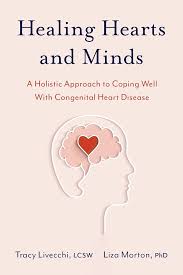In today’s world, where conversations around mental health are becoming increasingly open, many are seeking compassionate and trustworthy places to begin their healing journey. Whether it’s managing anxiety, dealing with life transitions, or wrestling with personal meaning, people are looking for guidance that honors both their emotional and spiritual well-being.
Pastoral counseling—a blend of faith-based care and empathetic listening—is emerging as a gentle, accessible first step for those not yet ready or able to seek clinical therapy. Rooted in compassion, community, and confidentiality, it offers a safe place for individuals to share burdens, explore their thoughts, and reconnect with hope.
This blog explores how pastoral counseling can serve as an important entry point for mental health support—especially for those who value holistic wellness, spiritual insight, and community-based care.

What Is Pastoral Counseling?
Pastoral counseling is a form of supportive, faith-informed guidance offered by trained clergy or spiritual leaders. Unlike clinical therapy, pastoral counseling is not necessarily diagnostic or medical in nature. Rather, it focuses on emotional support, spiritual exploration, and personal growth within the framework of one’s faith or moral values.
It may include:
Active, empathetic listening
Scripture-based encouragement
Moral or ethical reflection
Prayer or spiritual practices
Referrals to other resources, when appropriate
Importantly, pastoral counselors are not substitutes for licensed therapists, especially in cases of severe or clinical mental illness. However, they can provide a safe and meaningful starting point—particularly for those hesitant about mental health treatment or unsure where to begin.
Why Pastoral Counseling Makes Sense as a First Step
For many individuals—especially young professionals, health-conscious individuals, and those with deep personal or community ties—pastoral counseling offers several unique benefits:
1. Accessibility and Familiarity
Unlike clinical settings, churches or spiritual communities often feel more approachable. For someone new to the idea of counseling, a familiar environment and a known figure (like a pastor or chaplain) can ease fears and reduce the stigma.
This makes pastoral counseling especially appealing as a first step—a gentle gateway toward deeper healing.
2. Values-Based Support
Environmentalists, wellness enthusiasts, and those driven by purpose often want their emotional support systems to align with their core beliefs. Pastoral counseling provides a unique opportunity to address emotional concerns within a values-aligned, spiritually nurturing framework.
This alignment fosters not only trust but a greater sense of coherence between internal emotions and outward beliefs.
3. Whole-Person Focus
Health-conscious individuals often take a holistic approach to well-being—considering mental, physical, spiritual, and relational aspects of life. Pastoral counseling naturally supports this by attending to the whole person, not just a specific symptom or behavior.
It can help people feel heard, cared for, and understood beyond clinical terminology.
When Is Pastoral Counseling Most Helpful?
Pastoral counseling can be particularly beneficial in the following scenarios:
Navigating grief or loss
Struggling with life direction or purpose
Experiencing emotional stress or spiritual doubt
Facing relationship or ethical challenges
Preparing for marriage, parenting, or major life changes
Seeking prayerful support during difficult times
For many, pastoral counseling acts as a bridge—helping them stabilize emotionally and spiritually before choosing to pursue professional mental health services, if needed.
Building Trust Around the Process
For pastoral counseling to be effective, it must be grounded in trust, confidentiality, and a non-judgmental atmosphere. Here are some elements that make the process inviting and supportive:
1. Safe Space for Vulnerability
Many people fear that opening up emotionally will lead to judgment or shame. But when pastoral counselors approach with empathy, confidentiality, and compassion, individuals feel safe to express their true feelings.
This is especially important for those just starting to explore their emotional well-being.
2. Spiritually Rooted but Emotionally Informed
Effective pastoral counseling does not ignore psychological realities. Instead, it offers spiritual framing while also respecting mental and emotional complexity. Some pastoral counselors even receive basic training in active listening, trauma sensitivity, and mental health awareness.
This blend creates a powerful, balanced space for reflection.
3. Clear Boundaries and Referrals
Ethical pastoral counselors know when a situation exceeds their role and can recommend clinical therapists or support groups when necessary. Rather than replacing therapy, they become part of an integrated support system.
Encouraging Others to Consider It
For those in your circle—friends, community members, or fellow young professionals—who are struggling but unsure where to turn, gently suggesting pastoral counseling might be a valuable gift.
You could say:
“You don’t have to figure everything out alone. Have you considered talking with a pastoral counselor?”
“Sometimes just having someone listen and pray with you can make a big difference.”
“Even if you’re not sure what you believe right now, having a caring person to talk to can help.”
By making the suggestion approachable and stigma-free, you can open doors for others to begin their healing process in a low-pressure, encouraging environment.
Supporting Mental Health Within Faith Communities
Faith communities that embrace mental health awareness—especially through pastoral counseling—foster resilience, belonging, and genuine care. Here are ways churches and spiritual groups can support this:
Train clergy in basic mental health awareness
Host mental wellness events or guest speakers
Create resource lists with local therapists or hotlines
Offer private, confidential appointments for pastoral care
Normalize conversations around emotional well-being in sermons or small groups
By integrating mental health into their spiritual care model, communities become not just places of worship—but also places of healing and hope.
Conclusion: A Gentle First Step That Opens Doors
Pastoral counseling is not a cure-all—but for many, it is the first open door toward wellness. It’s a space where faith, emotions, and humanity intersect with grace and gentleness.
In a world where burnout, loneliness, and anxiety are increasingly common, pastoral counseling offers something profoundly needed: presence, compassion, and care without pressure.
If you—or someone you know—is seeking support but unsure where to begin, consider this simple, often overlooked option. It may just be the first step toward emotional clarity and spiritual peace.